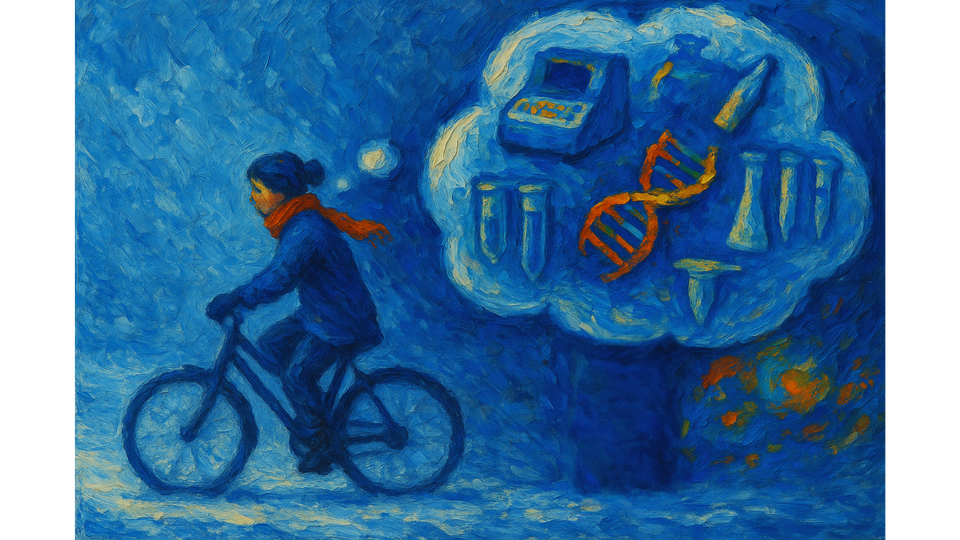Ich bin Anna - Part I

Based on several true stories
“Every time, I have to start from the beginning. As soon as the experiments work and the results look interesting, she takes the project away from me. Well, technically, it’s not even her. She goes to the professor, tells him God knows what, and then I get called into a meeting. He looks at my slides, nods, doesn’t show a hint of expression. Then he says that it all looks quite good, but that it might not really be my strength. Strictly speaking, there are some experts in the group who could finish it in no time.”
In Leni’s voice, I hear a mix of anger and disappointment. Sometimes it sounds as if it’s about to crack, but then she swallows it down. Like always. Her sentences shoot out like arrows. Precise. They leave no room for me to respond. What could I even say? Generic lines like “I’m sorry for you” or “You don’t deserve this” or “You’ll manage somehow.” All three are true, but they feel too small, too misplaced to give back even a fraction of this intelligent, ambitious, disciplined girl’s shattered confidence.
“But then he tells me I should try another field,” she continues. “And then it starts all over again. I look for a niche. Do literature research. Spend days reading into a new topic. Try to come up with something no one has done before but that’s still super relevant for humanity. Innovative, creative. Research country Germany. Everything is possible. As long as it doesn’t cost anything and isn’t too crazy. Hah.” Leni snorts in disgust.
“The dignity of professors is untouchable. He should protect me, you know, Anna. They don’t call it doctoral father for nothing. There’s a gang war in his lab, in the group he leads. He’s clueless. Has no idea what’s happening. Believes whatever he’s told, doesn’t question anything, and acts like a puppet. A pawn between the two leading postdocs.”
“That sounds like something from a high school movie.”
“Yes, only this is real and happening at one of the most prestigious universities in Germany. And I’m the unwilling protagonist. I just wanted to do research, to follow my passion.” Now the disappointment in her voice is unmistakable.
How does one become a professor? Through scientific excellence. That the job also involves teaching students, leading and managing people, running a lab, administratively, socially, and scientifically, often gets forgotten when choosing candidates. If it later turns out that this celebrated academic lacks those abilities, the university’s response is usually to keep up appearances and quietly ignore the mistake. Once a professor, always a professor.
“Oh no, my landlady’s calling. I could only pay half the rent again. I’ll call you back, Anna,” she blurts and hangs up.
It’s Saturday. As I pack my bag for work, I think about our conversation. Leni and I met during our biochemistry studies. She was—and still is—a high-flyer. One of those kids who had read the entire Harry Potter series at five and enchanted a full concert hall with her violin at ten. She skipped two grades, as far as I know. Won her first scholarship during high school, and even now, during her PhD, she’s funded by a merit scholarship. Her interests and talents are broad, and she struggled to choose a specialization, as she liked to call it. Her fascination with biology finally won, also with future job prospects in mind. Biology, yes. But at the smallest, molecular level. So she studied both biochemistry and biophysics.
Those are the kinds of subjects that, when mentioned at parties, earn you a polite “Oh, cool,” followed by silence and then the inevitable “And what can you actually do with that?” The terms sound so abstract and intimidating to the average Joe that you have to paint a picture to explain what they mean and why they matter. That’s where the “bio” part helps. You start with, “Have you ever heard of antibiotic resistance?” or “Breast cancer is one of the leading causes of death among women in Western countries,” or “There’s still no vaccine against HIV,” or “I worked on developing mRNA vaccine methods, which are now used successfully against COVID-19.” Average Joe nods respectfully, understandingly. In that moment, you rise in his eyes: from a science nerd to an essential part of a progressive society, to an academic with social responsibility and purpose.
I’m bundled up and ready to go, met immediately by the icy winter wind so typical for Boston. I trudge fifteen minutes through the snow to the subway station, then sit for forty-seven minutes in the rattling, overcrowded train. It smells like wet people. Since last month, I’ve had to stop biking. It’s simply too cold. And when I say unfortunately, it’s not because I enjoyed wasting two hours a day on roads unfit for cyclists, but because I could have saved the subway fare.
I’m also a PhD student in life sciences at what several international rankings call the best university in the world. So why, after five years of top grades and two more years of doctoral work at this elite institution, do I live in a tiny room with a host family on the outskirts of Boston? Why do I worry about a monthly subway ticket? And why, for God’s sake, am I working on a Saturday when I’ve already logged at least fifty-five hours this week? I ask you that. I ask society that. Why is our work not recognized, not supported? Around the world, in every field, PhD students earn minimum wage or less. We’re paid for half a position, yet expected to deliver double the output. Whether we get our doctorate, and whether we then stand a chance at a decent job in the scarce markets of industry or academia, depends entirely on our performance. I have to perform. Whatever it takes. Performance is all that counts.
But what exactly counts as good performance in academic research?
To be continued...

Comments ()